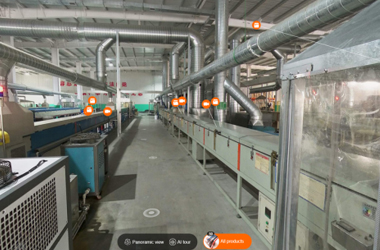Exploring Solutions for Oven Seals in Stoves and Their Importance for Performance
Understanding Oven Seals Importance, Maintenance, and Choosing the Right One for Your Stove
Ovens have been a fundamental part of cooking since ancient times, evolving from simple fire pits to complex appliances that enhance our culinary experience. One critical component that ensures the efficiency and safety of modern ovens is the oven seal, also known as an oven door gasket. This article delves into the significance of oven seals, their maintenance, and how to choose the right one for your stove.
The Importance of Oven Seals
Oven seals play a crucial role in maintaining the efficiency of your cooking appliance. They are typically made of silicone, rubber, or fiberglass and are designed to create a tight seal around the oven door. This seal prevents heat from escaping during cooking, ensuring that your meals are evenly cooked and energy-efficient. A well-functioning oven seal can keep the internal temperature consistent, allowing for better cooking results and reducing energy consumption, which is not just good for your wallet but also for the environment.
Moreover, oven seals contribute to safety. A compromised seal can lead to heat escaping, which could potentially lead to accidents or even fires. If the seal is damaged, it increases the risk of food not cooking correctly, potentially leading to foodborne illnesses. Therefore, regular checks and maintenance of your oven seal are essential for both safety and efficiency.
Signs of a Damaged Oven Seal
Recognizing when your oven seal needs attention is key to maintaining your appliance. Some common indicators of a damaged or worn-out seal include
1. Heat Loss If you notice that your oven is taking longer to cook food or the temperature is inconsistent, it may be time to check the seal. You can test it by closing the oven door on a piece of paper; if you can easily pull the paper out, the seal may not be tight.
2. Visible Wear and Tear Look for cracks, tears, or discoloration along the gasket. A proper seal should be intact and flexible.
3. Food Cooking Unevenly If you're consistently experiencing hotspots in your cooking or certain areas of the food not getting cooked, the oven seal might be causing heat to escape.
4. Noise A loud popping or clicking noise during use can indicate that the oven is working harder to maintain its temperature due to a faulty seal.
Maintenance Tips for Your Oven Seal
stoves oven seal

Maintaining your oven seal ensures its longevity and effectiveness
. Here are some tips to keep it in top shape- Regular Cleaning Wipe down the seal with a damp cloth and mild detergent to remove food particles and grease. Avoid harsh chemicals that could damage the gasket material.
- Inspect Regularly Check the seal for any visible damage during routine cleaning. This helps you catch issues early before they affect your cooking.
- Avoid Extreme Temperatures Be mindful of how hot items are placed in the oven. Placing cold items directly onto a hot seal can cause it to wear more quickly.
Choosing the Right Oven Seal
If you find that you need to replace your oven seal, selecting the correct one is essential. Here are a few considerations
1. Compatibility Ensure that the new gasket is compatible with your specific oven model. Manufacturers often provide specifications for replacement parts.
2. Material Depending on your cooking habits, you may prefer seals made from different materials. Silicone is flexible and durable, while fiberglass may offer better insulation.
3. Thickness The thickness of the seal can also impact its effectiveness. A thicker seal may provide a better grip and insulate more effectively than a thinner one.
Conclusion
In summary, the oven seal is a small yet vital component of your stove that should not be overlooked. Its primary function is to maintain heat, ensuring efficient cooking and promoting safety in the kitchen. By regularly checking the seal for wear and tear, maintaining it properly, and knowing when to replace it, you can enhance the performance of your oven and enjoy perfectly cooked meals for years to come. Always remember that a little preventive maintenance can go a long way in keeping your culinary adventures safe and successful!
-
Under Door Draught Stopper: Essential ProtectionNewsJul.31,2025
-
Garage Door Seal and Weatherstrips for ProtectionNewsJul.31,2025
-
Edge Banding Tape for Perfect EdgesNewsJul.31,2025
-
Table Corner Guards and Wall Corner ProtectorsNewsJul.31,2025
-
Stair Nose Edging Trim and Tile Stair SolutionsNewsJul.31,2025
-
Truck Bed Rubber Mats for Pickup BedsNewsJul.31,2025
-
Window Weather Stripping for Noise ReductionNewsJul.29,2025